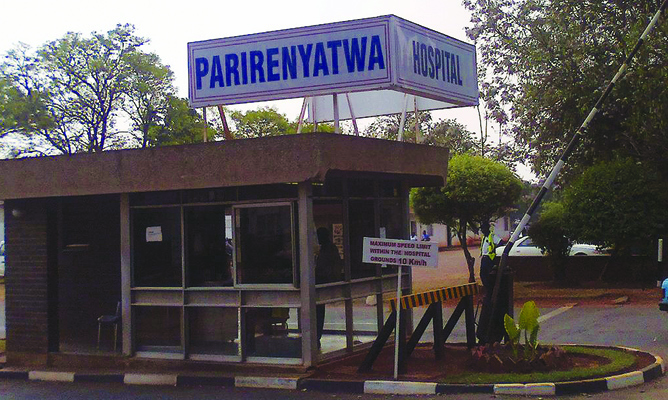
A HIGH nurse-to-patient ratio of 1:15 in the general wards is compromising quality at the country’s biggest referral health centre, Parirenyatwa Group of Hospitals.
By Garikai Tunhira
Speaking at the graduation ceremony of about 150 general and post-basic nurses at a hotel in the capital on Friday, Parirenyatwa Group of Hospitals acting principal nursing officer Kerith Mukumbi said the institution’s staffing establishment had remained static over the years “despite the increase in the workload and also changes in the disease pattern”.
“Three-quarters of those admitted need 24-hour nursing care. Nurse-to-patient ratio now stands at one nurse to 15 patients and with such a scenario, quality care could be compromised,” she said.
Mukumbi said the hospital was now admitting up to eight patients in the adult intensive care unit and about seven in paediatric intensive care, where one nurse per patient was the ideal situation.
She implored the Health Services Board chairperson Lovemore Mbengeranwa to advocate for more posts in hospitals, adding “failure to retain nurses after post-basic courses, which are not rewarded in government set up, leave us as a training ground for private hospitals and neighbouring countries”.
Health and Child Care minister David Parirenyatwa echoed similar sentiments, urging Mbengeranwa to address the staffing issues.
“Mbengeranwa, please make the necessary arrangements towards the work establishment,” he said, adding that “there is a big gap because if you are stretching [human resources], you can’t give people quality care”.
- Chamisa under fire over US$120K donation
- Mavhunga puts DeMbare into Chibuku quarterfinals
- Pension funds bet on Cabora Bassa oilfields
- Councils defy govt fire tender directive
Keep Reading
“It is unfortunate that the government will not be able to admit you (graduands) all due to our economy, which is not performing well,” Parirenyatwa said.
“You will agree with me that the country has become a training ground for other countries, where our nurses are sought after like hot cakes. Our nurses are in high demand the world over, but it is my fervent hope that, sooner than later, the government will match the demand for our nurses in our own country.”
Parirenyatwa said at present, Zimbabwe needed 8 000 nurses, yet there were 4 000 unemployed ones seated at home.











